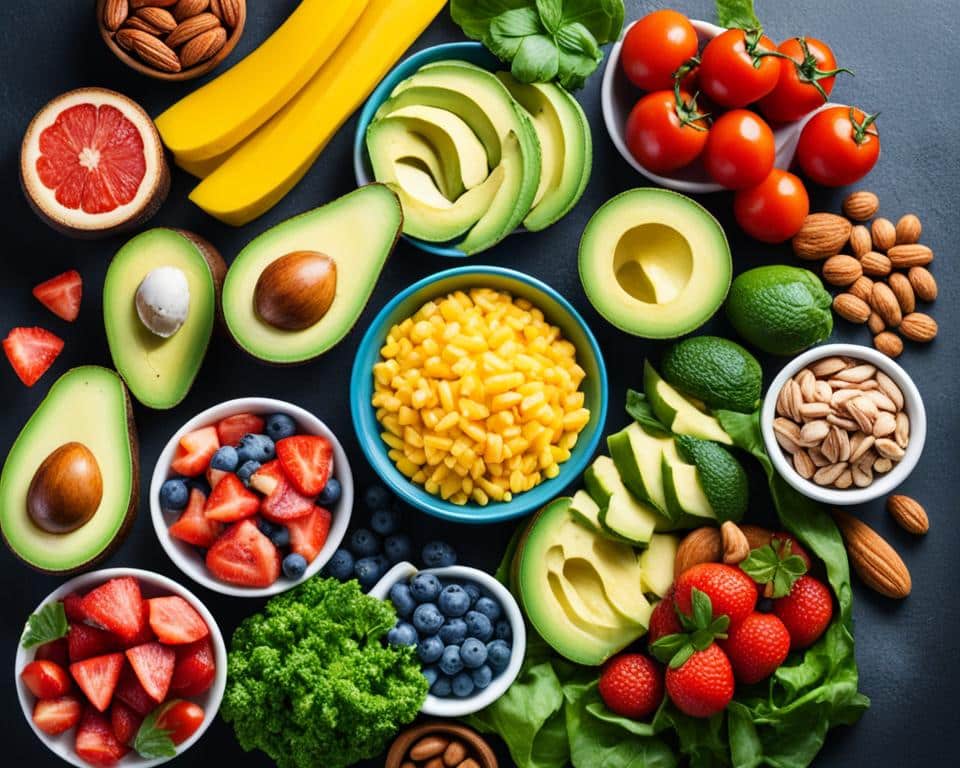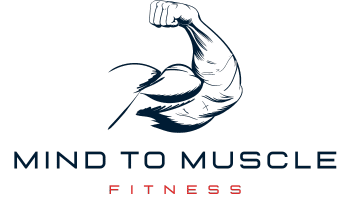
Unlock Incredible Intermittent Fasting Gains
Have you heard that just four weeks of intermittent fasting can help you lose 5 lbs of fat and gain 2 lbs of muscle? This perfect balance is a dream for many wanting to get fit. Seeing the change in body and energy through fasting has shown amazing results for many people.
Starting your fasting journey with a 12-hour window and slowly increasing it is a good plan. By the end of my first program, I saw and felt the difference. It’s a path of learning what works best for you and your lifestyle.
Intermittent fasting does more than help you lose weight. It helps you reset your body’s clock to eat and fast in a healthy rhythm.
Key Takeaways
- Adopting a 16-hour fasting window can catalyze significant body recomposition.
- Gradually ease into fasting by starting with shorter periods to better suit your body’s adaptation.
- Intermittent fasting is more than weight loss; it’s about gaining muscle and boosting energy.
- Introducing a fasting routine requires a personalized approach for maximum benefits.
- Maintaining hydration and a balanced diet during eating windows promotes overall health.
Embarking on Your Intermittent Fasting Journey
I’m starting the intermittent fasting for weight loss method. It’s about choosing an intermittent fasting schedule that fits my life. It’s more than missing meals, it’s about planning eating times. This approach helps jumpstart my metabolism and target hard-to-lose visceral fat. Gradual changes let my body adjust smoothly.
Staying hydrated is key to managing hunger during fasting periods. I turn to water, herbal tea, and non-caloric drinks. Over time, I feel less hungry and crave less. This is due to fasting helping regulate my hunger hormones.
One great thing I noticed is the boost in insulin sensitivity. This means more stable blood sugar levels and effective fat use. This journey improves not just how I look but also my well-being. Feeling more aligned, my mood improves as I see changes in weeks.
Alternate-day fasting might not always outdo simple calorie cutting. A 2017 study shows it often has higher quit rates. But, I’ve learned that fasting can still offer benefits like better insulin levels, lower blood pressure, and more insulin sensitivity from a 2018 study.
A 2022 study advises against late-night eating. It could make me hungrier, slow down how fast I burn calories, and raise my obesity risk. Knowing this, I’m excited to keep going and see my own changes.
How to Get Incredible Intermittent Fasting Results
To see great results from intermittent fasting, make it fit your life and goals. It’s good for losing weight, getting sharper mentally, or improving your metabolism. I’ll show you how to pick and stick to a fasting schedule, deal with hunger, and eat right when it’s time.
Choosing Your Intermittent Fasting Schedule Wisely
Picking the right fasting plan is your first step. You might try eating only during an eight-hour window each day to start. The key is choosing a plan you can keep up with, considering your daily life and energy needs. Find a fasting rhythm that feels right for you.

Gradually Increasing Fasting Intervals
Start fasting slowly to avoid feeling too hungry or tired. Begin with short fasts, then slowly make them longer. This helps dodge issues like headaches or trouble sleeping. Easing into fasting this way supports lasting weight loss and health benefits.
Staying Hydrated and Managing Hunger
Drinking enough is crucial when fasting. It helps with hunger and keeps you healthy. Sip water, herbal tea, or other drinks with no calories to control hunger. This will help you stay comfortable and focused during your fast.
Mindful Eating During Designated Times
When it’s time to eat, choose foods rich in nutrients. These foods give you energy and support overall health. Eating slowly helps with digestion and makes meals more enjoyable. Mindful eating boosts the benefits of your eating periods, leading to better results from fasting.
Optimizing Your Eating Window for Maximum Benefits
When I discuss the intermittent fasting before and after transformation, the eating window is key. It’s crucial to eat nutrient-dense foods during this time. These foods provide vitamins and minerals for optimal health and weight management.
I tell those I guide that exercise is important too. Pairing physical activity with good nutrition during eating periods boosts health. This way, you can improve your metabolism and body shape.
Listening to your body is also vital. Adjust your fasting based on what your body tells you. This will help you start a powerful journey to better health. Pay attention to signals such as hunger, energy levels, and overall well-being to ensure your fasting routine is sustainable and effective. Incorporating linear progression mastery techniques can help you gradually build endurance and adapt over time, making the process more manageable. Remember, it’s a personal journey, so what works for others may need to be tailored to suit your unique needs.

| Fasting Method | Description | Benefits | Side Effects |
|---|---|---|---|
| Alternate-day fasting | Normal diet one day, no food or one small meal the next day | Weight loss similar to low-calorie diets | Hunger, Fatigue, Headaches |
| 5:2 fasting | Normal diet for five days, fast for two non-consecutive days per week | Reduces inflammation, may improve symptoms of inflammation-related conditions | Insomnia, Nausea |
| Daily time-restricted fasting | Normal diet within an eight-hour window each day | Release of ketones, potential brain health benefits | Hunger, Fatigue |
Fasting affects both body and brain in amazing ways. Studies show it improves health markers and brain function. For instance, research by Mattson MP shows the benefits of fasting.
Remember, achieving optimal health is a unique journey for everyone. It should match your personal needs, focusing on nutrient intake. This approach will make your intermittent fasting before and after experience better. And lead to life-changing achievements.
Physical and Mental Benefits of Intermittent Fasting
Intermittent fasting is more than a way to lose weight; it enhances your well-being. By alternating fasting days or eating within set hours, people see big improvements. This includes better control of diabetes and heart health, as shown in research.
Understanding Weight Loss and Fat Reduction
Though many aim to lose weight, the real win is in changing body makeup. During fasting, your body burns fat for energy. This is seen in intermittent fasting success stories around the world. This process is key for better metabolic health.
Improving Metabolic Health and Insulin Sensitivity
Intermittent fasting boosts how well your body uses insulin. It lets your body run on fat instead of sugar, improving blood sugar control. This leads to long-term health improvements, making our bodies work better and fight diseases more effectively.
Exploring Autophagy and Longevity Enhancements
Intermittent fasting also triggers autophagy, a cell cleanup that helps you live longer. While results vary, human studies show signs of slowed aging. Over time, fasting increases your body’s defense against stress and inflammation, key benefits of autophagy.
FAQ
How can I start intermittent fasting for incredible results?
Begin by choosing a fasting plan that matches your lifestyle, like the 16/8 method. This method involves fasting for 16 hours and eating in an 8-hour period. Start with shorter fasts to easily adjust. Eat foods full of nutrients during your eating times to keep energy high and health in check.
It’s wise to talk to a healthcare professional before beginning, especially if you have health issues.
What are some tips to make intermittent fasting work for weight loss?
For weight loss, eat balanced meals with plenty of protein, fiber, and healthy fats during your eating times. These nutrients help control hunger and keep you full. Also, be sure to stay active to increase metabolism and burn more calories. Remember, being consistent and patient is important to see any results with intermittent fasting.
How can I choose the best intermittent fasting schedule?
Choosing the right intermittent fasting schedule depends on your daily routine. Look for a plan you can stick to over time. Beginners often like the 16/8 method. However, the 5:2 method, eating normally for 5 days and reducing calories for 2 days, might work better for others.
Try different schedules to find what suits you best.
What should I do if I get hungry while fasting?
If hunger strikes during fasting, drink plenty of water, herbal teas, or black coffee to help manage your appetite. Also, keep yourself occupied with non-food activities. You could go for a walk, read, or enjoy a hobby to distract yourself.
Is it okay to exercise during intermittent fasting?
Exercising while fasting is usually fine; some people even feel more energized. But, listen to your body. If you feel weak or dizzy, change your workout time or intensity. Eating well during your eating window will give you the energy needed for exercising.
Can intermittent fasting improve mental clarity?
Many report that intermittent fasting boosts focus and mental clarity. This might be due to less inflammation and stable blood sugar levels. Though based on personal stories, these mental benefits are often talked about.
How long does it take to see results from intermittent fasting?
Results from intermittent fasting vary by individual, but changes can often be seen in the first month. For significant weight loss or health improvements, it might take closer to 10 weeks. Keeping a consistent schedule and healthy eating habits is crucial.
What should I eat during my eating window to maximize health benefits?
Eat foods that are whole and rich in nutrients to get the vitamins and minerals your body needs. Include lean proteins, healthy fats, and fiber from fruits and vegetables. Try to avoid processed foods and sugary treats for better health results.
What is autophagy, and how is it related to intermittent fasting?
Autophagy is when your body cleans out damaged cells to make room for new, healthy ones. Intermittent fasting helps start autophagy because your body focuses on repairing itself when not digesting food. This can lead to better health and longer life.
Are there any risks associated with intermittent fasting?
Intermittent fasting is usually safe, but it’s not for everyone. People with certain health issues, pregnant or breastfeeding women, and those with eating disorders should be cautious. Always talk to a healthcare provider before starting any major diet or lifestyle changes.



